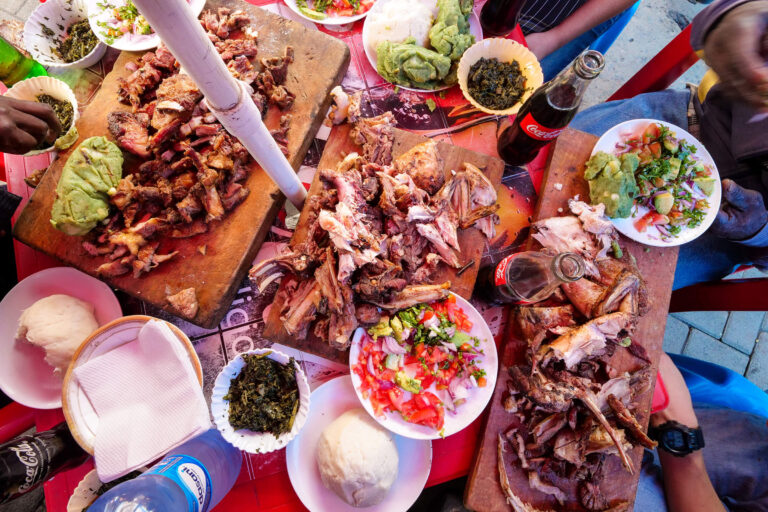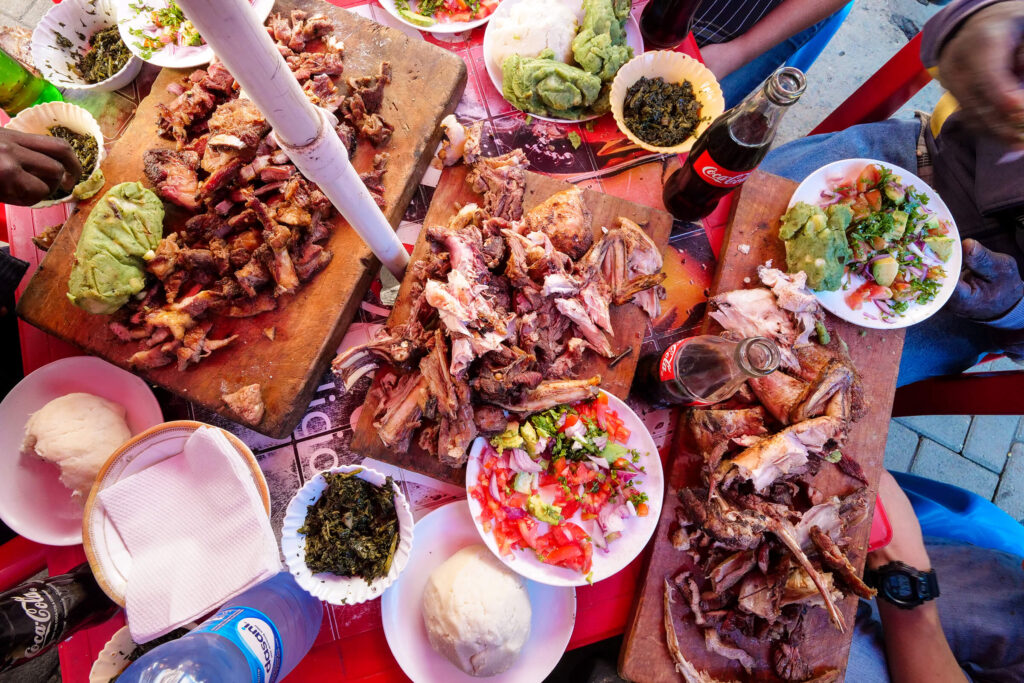In East Africa, food is more than nourishment—it’s a warm invitation to connect. While restaurants and lodges have their charm, the most unforgettable meals often happen in homes, around smoky kitchens, on plastic chairs under mango trees, or in simple village huts. Sharing a meal with locals offers a taste of authentic culture, layered with generosity, laughter, and tradition.
What to Expect When You’re Invited to Eat
East African hospitality is legendary. If you’re invited to dine in someone’s home—whether in Uganda, Kenya, Rwanda, or Tanzania—know that it’s a sign of deep respect and welcome. Don’t be surprised if you’re served the best the host can offer, even if it means they’ll go without.
Common etiquette includes:
- Wash your hands before and after the meal (often done using a small basin brought to the table).
- Let the elders or host begin eating before you do.
- Eat with your right hand if utensils aren’t provided, especially in rural areas.
- Say thank you—in Uganda, “webale” (thank you) or “webale nnyo” (thank you very much).
Staple Dishes You’re Likely to Find
Each region has its specialties, but here are a few common dishes served in many homes:
- Matoke (Uganda): Steamed green bananas mashed and served with peanut sauce, beef stew, or beans.
- Ugali (Kenya/Tanzania): A firm maize porridge served with greens, meat, or fish.
- Isombe (Rwanda): Cassava leaves cooked with groundnuts or palm oil, usually served with rice or plantains.
- Pilau (coastal Kenya/Tanzania): Fragrant spiced rice cooked with meat or vegetables.
You’ll often see meals accompanied by sukuma wiki (collard greens), beans, boiled sweet potatoes, or groundnut (peanut) sauce.
The Experience is the Meal
A local meal isn’t rushed. It’s a social affair where storytelling, laughter, and sharing happen alongside the food. Children may come around to watch or greet you. You may be offered a locally brewed drink or fruit from the garden. The generosity can be overwhelming—and unforgettable.
Cultural Takeaways
- Accepting food and eating with gratitude is one of the best ways to show respect.
- Offering to help wash dishes or tidy up may earn you a few smiles—and perhaps a deeper conversation.
- Don’t worry about speaking the language perfectly. A smile and a heartfelt “thank you” transcend barriers.







